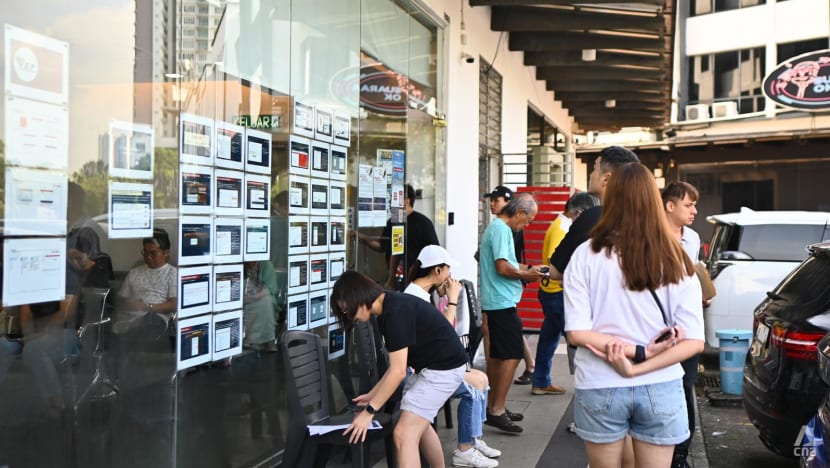Errant Singapore drivers rack up over US$13,000 in fines during first five days of VEP full enforcement
JOHOR BAHRU: Errant Singapore drivers caught without a valid Vehicle Entry Permit (VEP) racked up a total of RM57,000 (US$13,464) in 190 traffic summonses in the first five days of the permit’s full enforcement, according to Malaysia’s Road Transport Department (JPJ).
The department’s director for Johor state Azmil Zainal Adnan said 1,767 vehicles were inspected, with 94 vehicles issued warning notices since the stepped-up enforcement, which began last week on Jul 1.
“So far, VEP enforcement at the land checkpoints has proceeded smoothly,” he told local news agency Bernama on Sunday (Jul 6).
Malaysia’s Transport Minister Anthony Loke previously announced in June that Singapore-registered vehicles entering Malaysia without a valid VEP will face a RM300 compound fine from Jul 1.
Checks will be done through enforcement team operations outside the checkpoints to prevent traffic congestion there, he said.
Malaysia began the stepped-up enforcement of the VEP scheme at the stroke of midnight last Tuesday, with authorities setting up a roadblock about 100m from the immigration checkpoint at the Causeway.
Enforcement officials from the Road Transport Department (JPJ) stopped Singapore motorists without a valid VEP tag or an unactivated one, and issued them a RM300 fine.

The errant motorists were issued a physical compound slip. Fines could be paid using cashless methods at the JPJ counters, mobile counters or online via the MyEG website, according to Loke’s announcement in June.
CNA observed that within 15 minutes of the enforcement, about 15 Singapore-registered vehicles had been pulled over.
The enforcement is in line with Section 66H(7) of the Road Transport Act 1987, which makes it an offence to drive a foreign-registered motor vehicle into or within Malaysia without a valid permit.
Speaking to the media at the enforcement site last week, JPJ director-general Aedy Fadli Ramli said that enforcement efforts will target “areas in Johor where foreign vehicles are most concentrated”.
“For now, enforcement efforts will remain focused within Johor before we expand to other states where Singaporean vehicles are commonly found,” he added.
He added that motorists stopped by enforcement officers have to pay their fines, register for a VEP and activate it before they are allowed to leave Malaysia.
The main office of TCSens, JPJ's appointed vendor for VEP registration and installation at Danga Bay will be open 24 hours to help affected motorists, he said.
The TCSens centre was previously open every day from 9am to 5pm.

Those rushing to get their VEP tags last week voiced frustration at the long waiting times at the main centre.
The majority of the motorists CNA spoke to earlier were there to register and activate their VEP, as well as to settle issues about linking it with their Touch ‘n Go card, a contactless smartcard that can be used for cashless payments at toll highways.
The VEP refers to a radio frequency identification (RFID) tag used to track foreign vehicles and note if their drivers have outstanding fines and traffic offences in Malaysia.
The ramped-up enforcement is taking place nine months after Malaysia began requiring all foreign-registered vehicles entering the country by land from Singapore to use VEPs from Oct 1 last year.
This enforcement thus marked the end of a grace period where motorists who had yet to apply for the VEP were given warning notices.
The same penalty applies to private company vehicles without a valid VEP, but such vehicles with pre-registered but unactivated VEPs will be issued a reminder notice instead and be allowed to exit Malaysia.
Disclaimer: Investing carries risk. This is not financial advice. The above content should not be regarded as an offer, recommendation, or solicitation on acquiring or disposing of any financial products, any associated discussions, comments, or posts by author or other users should not be considered as such either. It is solely for general information purpose only, which does not consider your own investment objectives, financial situations or needs. TTM assumes no responsibility or warranty for the accuracy and completeness of the information, investors should do their own research and may seek professional advice before investing.
Most Discussed
- 1
- 2
- 3
- 4
- 5
- 6
- 7
- 8
- 9
- 10